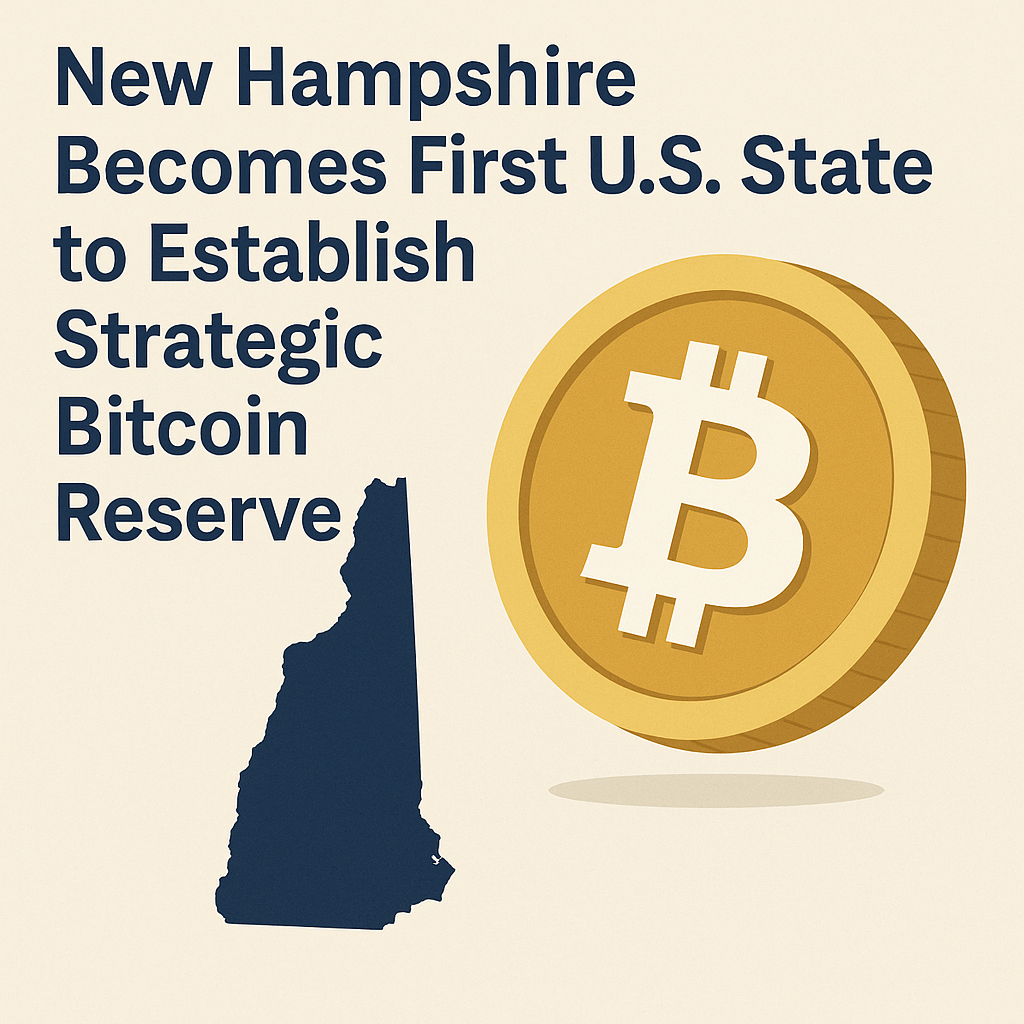On May 6, 2025, Governor Kelly Ayotte signed House Bill 302 into law, authorizing the state treasurer to invest up to 5% of New Hampshire’s public funds into digital assets and precious metals. This groundbreaking legislation specifically permits investments in cryptocurrencies with a market capitalization exceeding $500 billion, effectively focusing on Bitcoin as the primary eligible asset.
Key Provisions of HB 302
- Investment Cap: The state treasurer is authorized to allocate up to 5% of public funds into qualifying digital assets and precious metals.
- Asset Eligibility: Only digital assets with a market capitalization over $500 billion are eligible, currently including only Bitcoin.
- Custody Requirements: Investments must be held through secure custody solutions, such as state-controlled multi-signature wallets, qualified custodians, or U.S.-regulated exchange-traded products (ETPs).
- Implementation Timeline: The law is set to take effect 60 days after its signing.
Legislative Background and Support
The bill was introduced in January 2025 by Representative Keith Ammon, a known advocate for cryptocurrency adoption. It garnered bipartisan support and was influenced by model legislation from the nonprofit Satoshi Action Fund. Dennis Porter, CEO of the fund, highlighted the bill’s passage as a blueprint for other states considering similar measures.
National Context
New Hampshire’s initiative stands in contrast to other states’ approaches. For instance, Arizona’s similar bill was vetoed by Governor Katie Hobbs on May 2, and Florida withdrew its proposals before the end of its legislative session. At the federal level, while the Trump administration has shown interest in establishing a national Bitcoin reserve, it has yet to commit to new purchases beyond existing holdings.
Implications and Future Outlook
New Hampshire’s move positions it as a pioneer in integrating digital assets into state-level financial strategies. By allocating a portion of its reserves to Bitcoin, the state aims to diversify its assets and potentially hedge against inflation and financial instability. This development may influence other states to explore similar avenues, potentially accelerating the adoption of cryptocurrencies in public finance.

